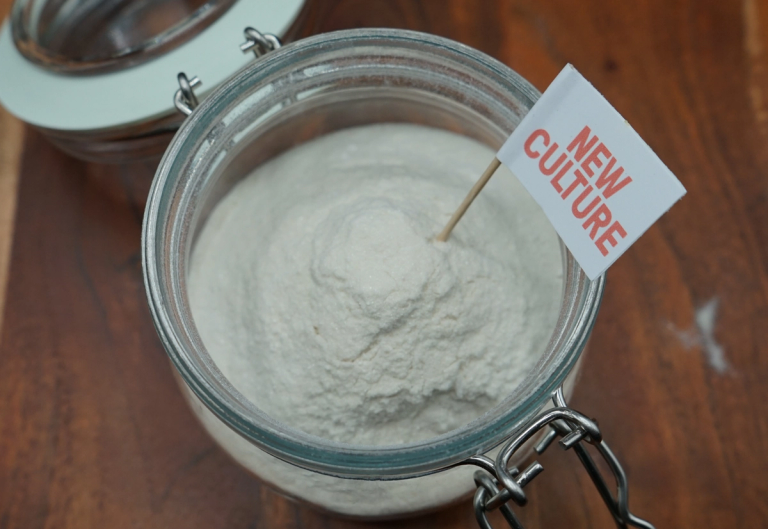
The Urgent Call for Sustainability at Scale
Monday, Aug 28, 2023
The global population is projected to reach a staggering 9.8 billion in 2050 and swell to 11.2 billion in 2100. So in the world of food production, the concept of scale often looms large. Larger-scale operations can provide cost efficiencies and wider distribution networks that enable ever more food to get to ever more mouths.
However, as our awareness of the harmful impact of industrial manufacturing grows, food companies are navigating the tradeoffs that can come with scale and environmental responsibility. This holds particularly true for cheese, a beloved industry that's revered for its traditions and also ripe for transformation.
The Environmental Toll of Cheesemaking Today
The US cheese market is valued at $40 billion and is made up of all sorts of cheesemakers, small and large: from hillside dairies producing artisanal batches of cheddar to multinational corporations sending products to the shelves of supermarkets countrywide. The largest players have built finely-tuned supply chains, manufacturing, and distribution operations - paired with regulatory support - to optimize costs and keep prices low to attract a broad consumer base.
But generating these efficiencies to produce massive amounts of low-cost cheese has also generated ecological costs that can’t be ignored. Cheese production from large dairy companies requires resource-intensive practices that contribute to deforestation, water pollution, excessive energy and land usage, and insidious greenhouse gas emissions. And while many of these large players may be investing in more sustainable agricultural practices, maintaining industrial-scale herds of dairy cows will simply never be a bucolic pastime.
As the environmental consequences of the dairy industry’s scale become more evident, yet the need to feed a growing global population remains, there is increasing urgency to chart a more sustainable course. And that’s where precision fermentation - and New Culture - come in.
Precision Fermentation: A Scalable, Sustainable Leap Forward
Precision fermentation is a technological advancement of the tried and true fermentation process: microorganisms digest sugars and transform them into something new. Microorganisms are trained to produce a specific, target protein (hence the “precision” in “precision fermentation”), then put into large fermentation tanks (think: brewing beer), fed sugars and other nutrients, and then the animal-free protein they’ve produced is recovered.
With precision fermentation, we can make real dairy proteins without any animals involved, eliminating the need for industrial animal farming. Since the precision fermentation process is optimized to produce specific proteins with high efficiency, it requires less land, water, and feed compared to animal farming methods. And because it is carried out in controlled environments, it’s much more energy efficient, is far less reliant on fossil fuels, and dramatically reduces greenhouse gas emissions. Not to mention the health benefits of a cleaner product (no cholesterol, no lactose, no trace hormones or antibiotics) and the ethical benefits for animal welfare.
The real beauty of this sustainable technology is that it has already been proven at scale, and is being used today across a number of industries - including food, dietary supplements and pharmaceuticals - for the consistent and large-scale production of ingredients without needing any animal inputs. Precision fermentation has evolved and matured since its first use over 30 years ago, and has become an efficient and cost-effective manufacturing process.
What we do - making nature-equivalent animal proteins using precision fermentation - is just a new application of this proven technology, the next evolution. Cost benefits at scale, without the environmental harms of factory farming, all while giving consumers foods they know and love. No tradeoffs needed.
Our Animal-Free Casein Protein & Scaling Journey
Here at New Culture, we’re using precision fermentation to make casein, the critical dairy protein in animal milk that makes cheese melt and stretch (yum, that’s why we love cheese!). We recently announced a milestone achievement for our animal-free production of this special protein: we’ve scaled our casein fermentation process to manufacturing levels that can produce 25,000 pizzas’ worth of cheese, which reduces our product costs by 80%. This is the world's first-ever animal-free casein and, using precision fermentation, the first to be produced at this large of a scale. This achievement keeps us on track to reach cost-parity with conventional mozzarella within three years with the production of 14 million pizzas’ worth of cheese.
As we further grow our manufacturing capabilities, we’re paving the way for a transformed dairy industry with far-reaching implications for environmental sustainability, animal welfare, and human health. This production milestone is an important signal that a new, planet-friendly future for cheese is within our grasp. A future where environmental stewardship doesn’t come at the cost of business and market opportunity.
Using precision fermentation, New Culture is pioneering a new era of responsible production. Because cheese isn’t just cheese: it's a reflection of our values, our choices, and our potential to reshape the world, one wedge at a time.